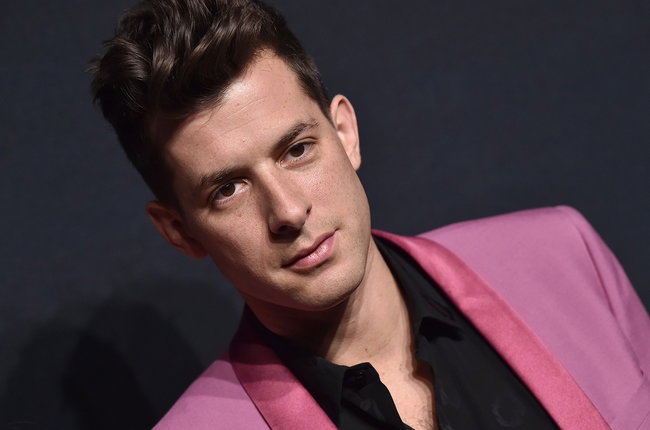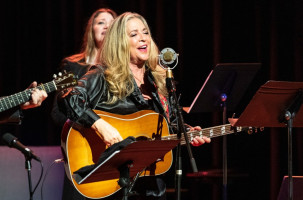@vurnt22 and 'More Bounce To The Ounce' by Zapp
Mark Ronson is facing another lawsuit over his smash hit "Uptown Funk," this time from the Lastrada Entertainment Company, Ltd., the music publishing house that holds the copyright to Zapp's 1980 funk classic "More Bounce to the Ounce." The suit was filed in U.S. District Court in New York on Tuesday (Sept. 12) against Ronson, producer Jeff Bhasker, Sony/ATV, Warner/Chappell, Vevo, Spotify, Apple and others.
"Mark Ronson failed in his goal to write something new," reads a copy of the suit obtained by Billboard. "Substantial parts of 'Uptown Funk' were copied from 'More Bounce to the Ounce.' The significant and substantial similarities between the two songs have been widely commented on by ordinary observers, musicians, independent critics and commentators."
Among the examples given for those various comments are Billboard and Slatereviews of the song citing the similarity to "More Bounce," as well as a tweet from Living Colour guitarist Vernon Reid.
As evidence, the suit cites a TED Talk lecture in which Ronson held forth on the history of English musicians "copying the works of blues musicians," including a bit in which the producer stated, "if you... copy without making it a carbon copy... it is original." It also quotes another recent interview about "Uptown Funk" in which Ronson stated, unprompted, that "Roger Troutman and Zapp, we heard them a whole lot in our formative years. You can't help hide those things that are your influence, but at the same time the goal is to do something new."
The suit also points to an L.A. Weekly interview where "Funk" co-producer Bhasker was asked about the song's "classic sound" noting the similarities between its keyboards and Zapp and Roger Troutman's and responded, "Yeah, I mean those are the production elements."
Claiming that "Uptown Funk" is "so substantially similar to 'More Bounce' that ordinary observers all over the world have remarked that the two songs sound the same," the suit asserts an extended passage from the 0:47-2:10.2 section of "Uptown Funk" is identical to the following elements of "More Bounce": "three-note introductory talk-box melody 'doubled' on guitar; chordal pattern; eight note melody: instrumentation; talk-box vocalization of the word 'doh'; and clap groove on the backbeat."
"There are no other songs, other than 'More Bounce' and 'Uptown Funk,' that feature this sequence and combination of musical elements," it states.
Furthermore, a musical chart is included as evidence highlighting all the notes in red that are similar in the two compositions. With just a handful of black notes remaining, the claimaints argue that "the passage from 'More Bounce' that is copied in 'Uptown Funk' is quantitatively important to 'More Bounce' as it is substantially repeated in 'More Bounce' such that it constitutes more than half of the composition."
Similarly, it is argued that the 48 second opening passage allegedly copied in "Uptown Funk" constitutes the "heart" of "More Bounce" and that the Ronson song uses "virtually the entire guitar part, bass melody and vocoder part from 'Bounce.' It also notes that the talk box sequence in "Uptown Funk" makes use of a vocoder effect that was pioneered by Zapp leader Roger Troutman, who is "the musician most identified with the talkbox."
A spokesperson for Ronson and RCA Records had no comment at press time.
The suit also notes that upon the release of "Uptown Funk," the defendants offered writing credit to Trinidad James' 2012 rap hit "All Gold Everything" but not a number of other songs, such as The Gap Band's "I Don't Believe You Want to Get Up and Dance (Oops Up Side Your Head)." The Gap Band was granted songwriting credit in 2015, while 1980s funk band Collage has suedRonson and company over alleged similarities to its 1983 song "Young Girls." There are currently 11 writers credited on "Uptown Funk."
Lastrada is seeking damages of up to $150,000 per infringement, a permanent injunction against profiting from the alleged infringement and a jury trial on the matter.
Notably, the lawsuit draws to mind the 2015 "Blurred Lines" trail between Robin Thicke and Pharrell Williams that ruled in favor of Marvin Gaye's family, asserting the hit makers unintentionally copied Gaye's 1977 hit "Got to Give It Up."
Troutman -- who led Zapp and scored solo hits on his own until his murder in 1999 at the age of 47 -- released the gold-selling "More Bounce" as a single from Zapp's debut album, which hit No. 1 on the Billboard R&B Albums chart in 1980. According to the suit, the song has been sampled more than 200 times by artists, including Notorious B.I.G., Ice Cube, Public Enemy and T-Pain. The track was named the Best Funk Song Ever in 2016 by Billboard; Lastrada owns a 72.81% interest in the song.
"Uptown Funk" was released in Nov. 2014 and had a 14-week consecutive run at No. 1 on the Billboard Hot 100 chart on its way to an 11-times platinum certification, with over 16.8 million copies sold worldwide according to the suit.








